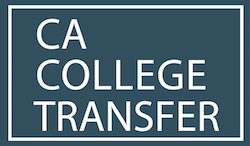About The New UC Personal Insights

I wanted to give a brief heads-up regarding the new UC Personal Insights because working with students, both freshman and transfers, it seems many are stuck in the previous essay mode, and the results include varying degrees of success.
First off, the Personal Insights are short answers. They are not essays, at least not in the traditional sense. Think of them as answers you might be expected to provide in a midterm that includes multiple choice and short answers.
Midterm question. Which is correct:
What is an example of a personal freedom that exists in your life?
Short answer A: An important personal freedom I believe I have is…
Short answer B: The stewardess reached over and handed me my coke. It was then that I had an epiphany.
Correct answer: A. I think we all agree you would choose Answer A. Why? Because B will throw the test reader into confusion. Um, OK, wait, what?
I am seeing way too many students misunderstanding the Personal Insights and still grabbing on to B, which is the prevalent go-to college essay strategy of starting the answer in the middle of an event so as to fully engage the reader out the gate.
I admit at one point I was a proponent of this method. However I, as well as millions of essay readers, grew mighty weary when every other essay opened with a middle-grab non-sequitur. In fact, Berkeley’s Boalt Law School wrote a scathing review of the practice a while back.
That aside, whether you like the method or not, it is an essay tactic. It is NOT a short answer tactic. Nowhere anywhere does the UC say the Personal Insights are essays. The UC repeatedly says they are short answers.
My personal thoughts on why the UCs changed from two Personal Statements (essays) to four Personal Insights (short answers):
- From the start, the UCs have always said they were not concerned with style in the Personal Statements. They were only concerned with content. The UCs truly wanted something that would differentiate one applicant from another equally-compelling applicant. Sure, it was not a perfect system and a couple of short essays do not tell you much about a person, but it was better than nothing.
- Problem 1 arose when a myth got perpetuated that you had to write about hardship. This became a mantra with many independent admissions folks. Write about hardship, write about a struggle. Over and over. The same message. Hence, of the two essays, there was a preponderance of struggle essays.
- Problem 2 was the increasingly hard and fast rule to open your essay with a sentence starting in the middle of an event. But, as noted above, it became overkill. If you weren’t working with a coach who told you to do that, you were reading it constantly online. As a reader of UC Berkeley Alumni scholarship essays, let me tell you, it gets old fast.
- Branching out into four Personal Insight answers corrects most of these imbalances:
- It is not solely about hardship anymore as the other parts of the Personal Statement prompts, often ignored, are brought to the forefront — including creativity, talent, life philosophy — things the UCs legitimately want to know about.
- Short answers help eliminate the overly-coached essays.
- The UC can now just get straight answers from students.
The straight dope? They want it straight.
 The Personal Insights are short answers. To the point. Nicely written, with good punctuation. No showy ostentatious footwork.
The Personal Insights are short answers. To the point. Nicely written, with good punctuation. No showy ostentatious footwork.
If you decide to work with a consultant, never choose one who pushes hardship. You also want a consultant who guides but is essentially hands-off. This means guidance with brainstorming, helping to narrow down the questions that best benefit your situation. They should help strengthen your argument, guide you when more pizzazz is needed, and do light editing. The words, voice, and tone should always remain yours.
You never want the admissions office to get even a whiff of thinking your answers/essays were not written by you. Trust me, you don’t want to go there.


Comments (0)